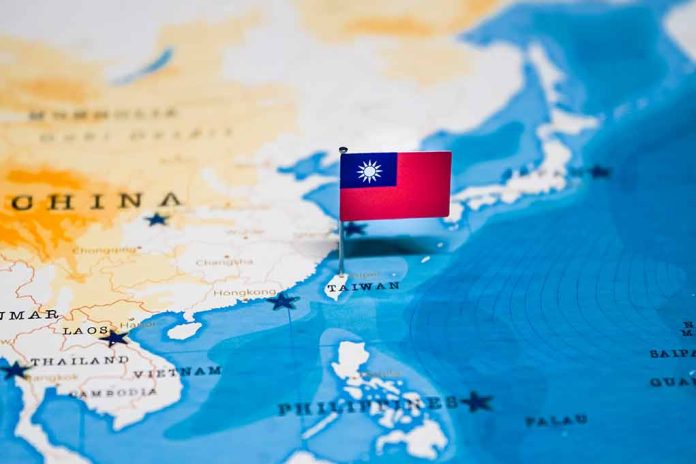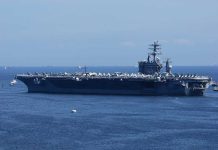
Taiwan’s recent defense budget increase serves as a strong message to Donald Trump and other global powers that the island is determined to take more responsibility for its own defense. The latest budget, announced in August 2023, marks a record high of NT$606.8 billion (approximately US$19.1 billion), equivalent to 2.6% of Taiwan’s GDP. This growth in defense spending is particularly significant given the threat posed by an increasingly assertive China.
Taiwan Answers Critics
In response to Trump’s call for Taiwan to pay more for its defense, Taiwan’s premier, Cho Jung-tai, emphasized the importance of shared responsibility for maintaining peace and stability in the Taiwan Strait. Taiwan’s reactions highlight not only its commitment to strengthening its military capabilities but also its desire to maintain a positive relationship with the United States.
The US Factor
Donald Trump’s remarks comparing US support for Taiwan to an insurance policy have sparked concerns about the shift in US foreign policy. Trump stated, “I think Taiwan should pay us for defense.” This sentiment marks a significant departure from the long-standing US commitment to providing military support to Taiwan, undermining trust and raising fears about the reliability of US support.
Benefits of Strengthened Taiwanese Defense
Taiwan’s increased defense spending is vital for both regional and global stability. The recent focus on enhancing military capabilities has included extending compulsory military service from four months to one year and investing in asymmetric weapons, mines, and drones. These efforts should help deter China and ensure Taiwan is better prepared for potential conflicts.
Historic Context
The Taiwan Relations Act has long served as the foundation for US support to Taiwan. However, the evolving military balance across the Taiwan Strait necessitates a re-evaluation of the United States’ support strategy. The United States must continue to stand unified with Taiwan against potential Chinese aggression while ensuring that Taiwan is not perceived as drawing support without contributing its share, a delicate balance that requires both economic and diplomatic cooperation.
Local Perspectives
Taiwanese citizens have diverse opinions on Trump’s remarks. Some emphasize the need for self-defense, while others stress the importance of maintaining a good relationship with the US. This dichotomy reflects Taiwan’s complex balancing act between asserting autonomy and relying on external support.
Economic Significance
Taiwan’s dominance in the semiconductor industry has been highlighted as a significant factor in maintaining stability due to its potential economic impact. Trump noted Taiwan’s valuable semiconductor industry as a major reason for China not to invade, indicating the interconnected nature of defense and trade in this region.
Growing Multilateral Support
Multilateral efforts to support Taiwan’s defense are critical. International backing can help to counterbalance China’s growing influence and emphasize Taiwan’s strategic importance. Washington must utilize this support to reinforce Taiwan’s growing military capabilities.
For more insights on Taiwan’s defense strategy, watch this:
Messages of Solidarity
The global community must unite behind Taiwan to ensure it has the strength needed to withstand Chinese aggression. As Taiwan continues to build its military prowess, international support becomes crucial for regional stability, and Trump’s demands must be understood within this broader context. A resurgence in support for Taiwan on all fronts can help to safeguard the future of this strategic success story.
Follow the latest updates on Taiwan’s defense strategy on Twitter:
Trump says Taiwan "should pay" US for defense, casting doubt on relationship between Washington and Taipei should he be re-electedhttps://t.co/kD9mpfJybs
— The Defense Post (@DefensePost) July 17, 2024








